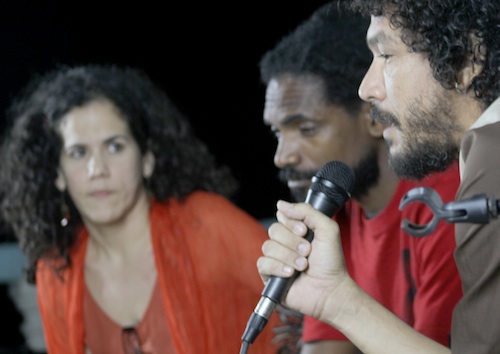Despertar: No Censor, No Cry
by Orlando Luis Pardo Lazo / May 14, 2012 / No comments
Despertar, a documentary on rapper Raudel Collazo, was censored by Cuban authorities.
Despertar (Awakening) is a documentary by Ricardo Figueredo. The movie is about the cultural apartheid against Rastafarian rapper Raudel Collazo, who has been notorious worldwide for his song “Decadencia,” a generational howl against the institutionalized intolerance of the Cuban Revolution.

- Is it worth-while to focus on the last images and letters coming from the inside of the last living utopia on Earth? Is Cuba by now a contemporary country or just another old-fashioned delusion in the middle of Nowhere-America? A Cold-War Northtalgia maybe? Can we expect a young Rewwwolution.cu within that Ancien Régime still known as The Revolution? I would like to provoke more questions than answers.

- Orlando Luis Pardo Lazo was born in Havana City and still resides and resists there, working as a free-lance writer, photographer and blogger. He is the author of Boring Home (2009) and is the editor of the independent opinion and literary e-zine Voces.
In April the national screening of Despertar was censored in the Young Filmmakers Exhibition. The censors were the Institute of Cinematographic Art and Industry (ICAIC) and the Ministry of Culture (MINCULT), entities that didn’t even bother to send an official notice.
However, the screening’s organizer, Fernando Pérez—author of classic films such as Clandestinos and Suite Habana—protested this arbitrary measure and signed a petition on the right to free expression. He also resigned from his position as curator to avoid being complicit in such injustice.
Other filmmakers and art critics presented their concerns in open letters while Despertar was shared by from computer to computer throughout Havana. Finally the documentary reached a greater audience than it would have if it had been approved by the government. And, despite pressures by the political police, the film opened in public on the night of April 27, 2012, in a house transformed into a gallery as part of the independent projects Cine a toda Costa and Estado de SATS. There Figuerdo and Collazo openly discussed their work with dozens of spectators.
Thus, the symptoms of a new Cuban mentality are irreversibly announced. Now artists don’t depend on the whims of a caste of officials whose attitudes range from paternalism to despotism. There are alternative mini-productions and an incipient underground market for distribution. Little by little, for the first time in the history of the Revolution, our art has caught up to the absolute power. The word “censorship,” like an old-fashioned melody, shall leave our ears. Creativity has proven to be a better antidote than the complaint.





